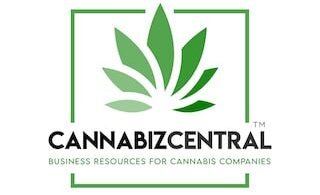Cannabis Companies Checklist for Raising Money Under Rule 506
Private companies raising money in private offerings of securities often rely upon an exemption under Rule 506 of Regulation D.
In fact, Rule 506 is undoubtedly the most popular safe harbor from the registration requirements under Section 4(a)(2) of the Securities Act of 1933.
This is due in no small part because an offering conducted under Rule 506 affords a company the ability to raise an unlimited amount of money.
Rule 506 provides two distinct exemptions: Rule 506(b) and (c). Unlike Rule 506(b), an issuer relying on Rule 506(c) can engage in general solicitation when marketing its offering. Certainly, there are traps for the unwary when proceeding under either exemption, as some cannabis companies have unfortunately discovered in recent years.
When is general solicitation available to issuers? Rule 506(c) allows a company to broadly solicit and generally advertise the offering. However, companies relying on Rule 506(b) are prohibited from engaging in general solicitation or advertising to market the offering. Generally, as a practical matter, this means that companies raising capital under Rule 506(b) must have a pre-existing, substantive relationship with prospective investors.
Who can invest in a Rule 506 offering? Under a 506(b) offering, a company may sell its securities to an unlimited number of accredited investors and up to 35 non-accredited investors. All non-accredited investors, either alone or with a purchaser representative, must be “sophisticated,” meaning they must possess sufficient knowledge and experience in financial and business matters to make them capable of evaluating the merits and risks of the prospective investment alone, or with the assistance of a purchaser representative. Rule 506(c) requires that all investors in the offering must be accredited.
How does a company verify accredited investor status? In offerings conducted under Rule 506(b), investors are typically asked to answer a set of ‘check-the-box’ questions set forth in an “Accredited Investor Questionnaire” indicating that they satisfy at least one of the definitions of an accredited investor. While it is sufficient for investors to simply self-verify their accredited investor status in Rule 506(b) offering, Rule 506(c) imposes a heightened verification standard on issuers. Self-verification is insufficient under Rule 506(c), which requires an issuer to take reasonable steps to verify the accredited investor status of the investors.
Verification methods under Rule 506(c): Over the years, the SEC has offered guidance regarding some non-exclusive methods for companies to verify accredited status for individuals, including, for example:
- Income verification: Review the past two years’ tax returns and written assertions that the income is expected to continue;
- Asset verification: Review bank and brokerage statements, tax assessments/third-party appraisals of real estate holdings and verification of liabilities through an investor’s credit report; or
- Written confirmation by a third-party: Such as a securities broker-dealer, registered investment adviser, licensed attorney, or CPA. The third-party must attest to have taken reasonable steps to verify the investor’s accredited status within the past 90 days and that the person is, in fact, accredited. Further, there also exists an exemption for investors who previously invested with an issuer as an accredited investor.
Form D filing is a must: Under either Rule 506 exemption, the issuer must file a Form D with the SEC within 15 calendar days following the first sale of securities in the offering. States are preempted from imposing any additional requirements other than requiring a blue sky notice filing with state regulators. Late filings may result in incurring penalties from state regulators. Typically, the conventional wisdom is that it’s better late than never to file if you miss the deadline. Failure to file Form D may result in an issuer being enjoined from relying on Rule 506 and other exemptions in the future. Therefore, although the failure to file may not affect the validity of the current exemption, the SEC could seek to enjoin the issuer from relying on Regulation D for its future capital raises.
Recent actions by securities regulators:
- Recently, the SEC filed a complaint against a Maine-based medical marijuana company that had been raising money under Rule 506.
- The SEC alleged that the company was engaged in soliciting investments but did not otherwise take steps to determine whether the investors were in fact accredited investors. As an example, the SEC alleged that the company did not request financial information from prospective investors.
- Further, the SEC alleged that at least some investors were not accredited investors because they did not meet the income or net worth thresholds for accredited investors.
- In another recent case in Massachusetts, state securities regulators pursued a complaint against a company engaged in the cultivation of recreational marijuana.
- The company had conducted securities offerings under Rule 506. According to the complaint, the company engaged in sales of unregistered securities to the general public, meaning the offering was under Rule 506(c).
- The company’s solicitation activities included issuing press releases, publishing newspaper advertisements, emails, online video presentations, and making offering materials and projected company financials publicly available on its website. In addition, the complaint noted a principal of the company attended multiple conferences where he solicited prospective investors.
- State regulators alleged that the company purported to rely on exemption from registration under Rule 506 of Regulation D in connection with its private placement offerings, yet it allegedly failed to file a Form D to perfect the offering exemption.
- Further, the complaint alleged that offering materials indicated only accredited investors were eligible to participate; however, the issuer sold unregistered securities to unaccredited investors.
- Moreover, according to the complaint, the company failed to verify whether an investor was accredited and failed to determine the accreditation status of investors. The Company did not require investors to provide any financial documents (such a W-2, 1099) or other tax documents to show proof of accreditation, nor did the company require investors to provide bank statements or brokerage statements to show their net worth or annual income.
By: Max Riffin




